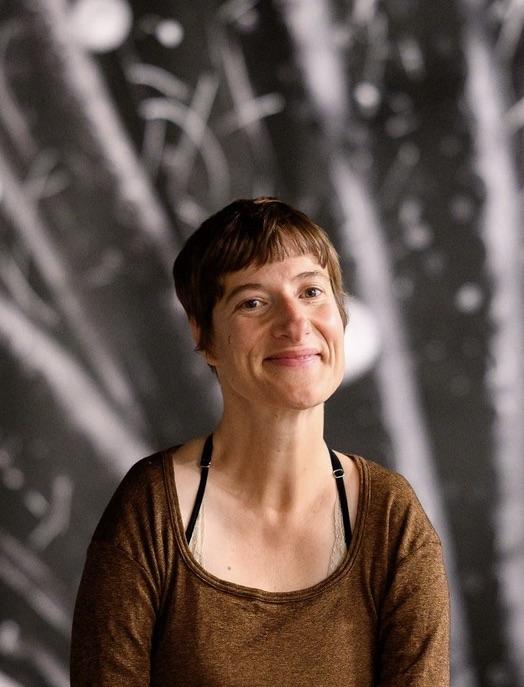Assistant Professor
Assistant Professor
Pronouns: (She/Her/Hers)
NOTE FOR PHD APPLICANTS: I am accepting students for the 2024 application cycle. Please know I only bring graduate students into my lab who work in the areas of critical disability studies/crip studies. In addition I advise students working in critical animal studies and multispecies justice. Please reach out to schedule a meeting if you fit this criteria and are interested in applying.
If you are a disabled student who is wanting to know more about navigating ESPM feel free to reach out to me anytime.
Sunaura Taylor is an Assistant Professor in the Division of Society and Environment and the director of the Disabled Ecologies Lab. Taylor is a scholar and artist who works at the intersection of disability studies, environmental humanities, animal studies, environmental justice, and art practice. Her research situates disability and ableism as central forces shaping human relationships to the more-than-human world. Concerned with relationships between altered bodily capacity, vulnerability, and systems of exploitation across species and ecological boundaries, her works crosses a range of disciplines, mediums, and audiences.
Taylor is author of Disabled Ecologies: Lessons From a Wounded Desert (UC Press, 2024). Her first book, Beasts of Burden: Animal and Disability Liberation (The New Press, 2017), which received the 2018 American Book Award. Along with academic journals, Taylor has written for a range of popular media outlets. Her artworks have been exhibited nationally and Internationally. Among other awards, she has received a Joan Mitchell Foundation MFA Grant, two Wynn Newhouse Awards, and an Animals and Culture Grant.
PhD, American Studies, New York University
MFA, Art Practice, University of California, Berkeley
BA, Interdisciplinary Degree, Goddard College
Disability studies/crip theory; ableism; animal studies/ethics; multispecies justice; environmental humanities; ecofeminism; environmental justice
Beasts of Burden: Animal and Disability Liberation
Taylor's first book, Beasts of Burden: Animal and Disability Liberation (The New Press, 2017) challenges utilitarian arguments for animal liberation that have traditionally pitted the rights of animals against those of disabled people. Beasts of Burden conceptualizes ableism as central to anthropocentrism, ultimately exposing not only shared genealogies of oppression, but shared paths toward liberation. Centering feminist theories of care, disability justice frameworks of interdependence, and anti-racist animal theory, Beasts of Burden offers an alternative framing of animal liberation that emphasizes entangled systems of oppressions and radical forms of solidarity.
Disabled Ecologies: Living With Impaired Landscapes
Taylor's current research project asks how disability studies might alter the way we think about and respond to our current regime of environmental devastation. Disabled Ecologies suggests that new and generative understandings of disability and nature emerge when we follow the trails of disability that are created when ecosystems are contaminated, depleted, and profoundly altered. Taylor looks at the Tucson International Airport Area (TIAA), a forty-year-old Superfund site that developed from contamination of the groundwater by Hughes Aircraft (now Raytheon), in Tucson’s largely Latinx Southside and portions of the Tohono O’odham Nation. This project understands harmed ecosystems as parts of larger networks of "disabled ecologies," or the material and cultural ways disability is manifested and produced between and among human and nonhuman entities. This reseach brings the disabled ecologies of the TIAA to light in order to reveal the centrality of disability to systems of environmental violence, and to point to alternative ways of responding to ecological damage—an urgent task as we live in a time of rapid ecological disablement. Disabled Ecologies suggests that disability theory, with its deep engagement with concepts such as loss and limitation, vulnerability, interdependence, and adaptation, might offer key insights into how to live in, respond to, and build accessible futures for all kinds of disabled beings and impaired landscapes.
Contact details
Sunaura Taylor
UC Berkeley
130 Mulford Hall #3114
Berkeley, CA 94720


